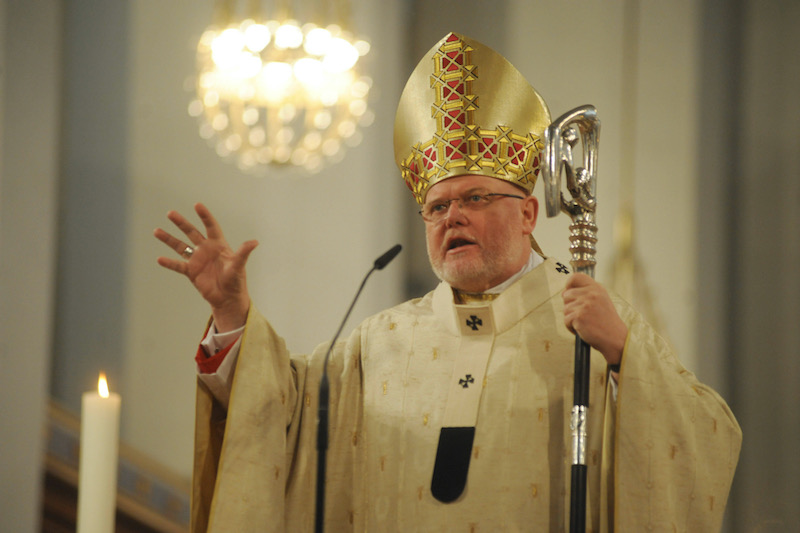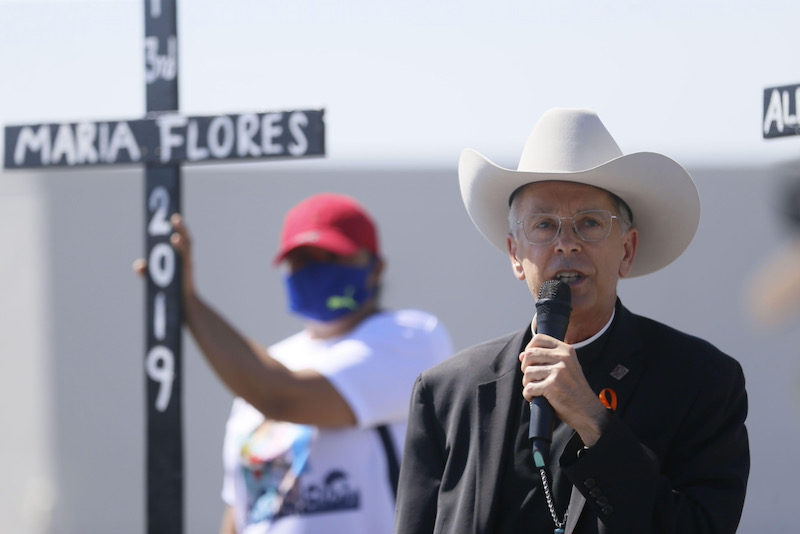The Catholic charity, Aid to the Church in Need (ACN) International, has reported that Catholic nuns are being raped and severely abused amidst growing military brutality in the northern province of Ethiopia’s Tigray region. A local source, who cannot be identified for security reasons, told ACN that the military were deliberately targeting the young, and women including nuns, in atrocities which the source said amounted to genocide. The source said: “The women and the girls are receiving a different kind of abuse, like you’ve never heard before, things that are very bad.”
Bishop Matthew Hassan Kukah of Sokoto has again attacked the Nigerian government’s inability to halt killings and banditry. Speaking at the 1 June funeral in Kaduna of a priest killed by bandits he said: “Those who govern us are allowing this killing of citizens…. because they have no blood in their hearts.” Fr Alphonsus Yasshim Bello, 33, was murdered in Katsina on 21 May. Fr Joe Keke, 75, who was abducted the same night Fr Bello was killed, was released on 3 June after Bishop Kukah took personal charge of negotiations. The Archbishop of Lagos Alfred Adewale Martins last month urged the Federal Government to declare a state of emergency in Nigeria due to “looming anarchy” and said the Muhammadu Buhari-led government had failed “at all levels” to address the root causes behind increasing insecurity.
The Catholic Bishop of Zambia’s Ndola Diocese has banned the wearing of any political party regalia at church premises within his episcopal see, ahead of the country’s 12 August elections. “When at Church, we all belong to the party of Jesus Christ and nothing more,” Bishop Benjamin Phiri said on announcing the ban on 3 June.
Muslim communities in the eastern Machinga district of Malawi have given Mpiri Catholic Parish a 21-day ultimatum, demanding that the church should vacate the “Muslim territory” after a decision by public schools – including Catholic schools – to ban female students from attending school in a hijab. The Muslim community in Machinga, which is one of two majority Muslim districts in the country, are reported to have sent a letter, seen by Malawi’s Nyasa Times, claiming the restrictions are “discriminatory and a disgrace” and that they will use “whatever means” to force the Church to move its parish from the area. The General Secretary of the bishops’ conference, Fr Henry Saindi, has called for calm amongst Catholics in the area and said he has referred the issue to Malawi’s Public Affairs Committee.
Catholic leaders, both bishops and lay leaders of social service agencies such as Catholic Charities USA and Catholic Relief Services, met in Chicago to discuss ways the Church can assist migrants and refugees coming to the US. The meeting was spearheaded Bishop Mark Seitz of El Paso and hosted by Cardinal Blase Cupich. The president of the US bishops’ conference, Archbishop Jose Gomez said: “We need to find a path forward that is rooted in solidarity and fraternity.”
The Archdiocese of Milwaukee has refused a request from the Wisconsin Attorney General to turn over documents related to clergy sex abuse of minors. The archdiocese contends that the documents were sealed as part of its 2012 bankruptcy settlement. Wisconsin is one of 22 states that have begun investigations into clergy sex abuse. The archdiocese contends that the investigation serves no useful purpose as most claims have been settled and renewed publicity only aggravates survivors.
The Centre for Applied Research in the Apostolate reported that the number of permanent deacons in the United States continues to decline, a trend that began in 2014: 410 deacons retired from active ministry in 2020 and an additional 378 died, compared to 587 who were ordained. There are approximately 19,000 deacons in the US today according to the study, 14,722 of whom are in active ministry.
The Archdiocese of Seoul, South Korea, has sent US$1 million to the Vatican to promote equal access to Covid-19 vaccines for poor countries and communities. Cardinal Andrew Yeom Soo-jung, Archbishop of Seoul, supported a public appeal following theVaccine-Sharing Campaign launched by Pope Francis on Easter Sunday. Funds were raised by 234 parishes and Catholic organisations.
Speaking at the end of the Ugandan Martyrs Mass at the Shrine of Namugongo on 3 June, Bishop Joseph Anthony Zziwa of Kiyinda-Mityana, President of the Bishops' Conference, urged the 500 attendees to pray for the country in the face of “murders, land conflicts, corruption and torture” and the detention of political prisoners. Charles Lwanga, one of 22 Catholic Ugandan martyrs, is the patron of youth and Catholic action in most of tropical Africa. He protected his fellow pages, aged 13 to 30, from the homosexual demands of the Bagandan ruler, Mwanga. For refusing to submit to Mwanga’s demands and for his efforts to protect his friends, Charles Lwanga was slowly burned to death at Namugongo on 3 June 1886, on the orders of Mwanga. When Pope Paul VI canonised the 22 martyrs on 18 October 1964, he also made reference to the 23 Anglican pages martyred for the same reason.
Coptic Christians and Muslims in Egypt have joined a week of Covid-restricted festivities at the Marian monastery of Jabal al Tayr, in the Coptic Orthodox diocese of Samalut, a site said to have been visited by the Holy Family during their exile in Egypt. According to tradition, they crossed the Nile where the Monastery now stands, and settled in the cave that is incorporated into the ancient church.
In the lead-up to presidential elections in November, Nicaraguan President Daniel Ortega has cracked down on opposition leaders. Cristiana Chamorro, a leading opponent as Ortega seeks a third consecutive term, is under house arrest. Another candidate, Arturo Cruz, was also detained this week. Nicaraguan clergy have denounced the repression, which echoes the violent response to opposition protests in 2018. Silvio José Báez, the Auxiliary Bishop of Managua, who is living in exile in Miami, posted on Twitter, “The dictatorship is ramping up repression every day and will stop at nothing to impede free elections.”
There was no public vigil this year to remember protesters killed in Tiananmen Square in mainland China on 4 June 1989, but seven Catholic churches across Hong Kong held memorial Masses. Cardinal Joseph Zen, Bishop Emeritus of Hong Kong, celebrated one and said in his homily that, “we refuse to be pessimistic in the remembrance of the dead – those killed 32 years ago” and “our prayer is also for the Lord to lead the rulers to walk on the path of justice and peace.” On 4 June police detained democracy leader Chow Hang-tung, one of the few remaining prominent democracy activists not already in jail.
The Lahore High Court in Pakistan acquitted a Christian couple last week of alleged blasphemy. Shafqat Emmanuel, who is disabled and in poor health, and his wife Shagufta Kausar, have been in separate prisons since 2014 after being convicted of sending text messages insulting Muhammad. Both pleaded their innocence, pointing out they are illiterate. Saiful Malook, the Muslim lawyer who defended them and who overturned the blasphemy conviction of Asia Bibi, has appealed to the international community to help him relocate to an English-speaking country. “I can’t survive anymore in my country” he said.
Pope Francis acknowledge the dedication of the month of June to the Heart of Jesus with a tweet saying: “During this month of June …we can repeat this simple prayer: ‘Jesus, make my heart resemble yours’. In this way, our own hearts will slowly but surely become more patient, more generous, more merciful.”
The paragraph which applied to women’s ordination in new code of canon law released on 1 June was a great disappointment and a “slap in the face” for women, the German Catholic Women’s Association (kfd) said in a statement published on 2 June. Paragraph 3 of canon law 1379 now states that “Both a person who attempts to confer a sacred order on a woman, and the woman who attempts to receive the sacred order, incur a latae sententiae (automatic) excommunication reserved to the Holy See; a cleric, moreover, may be punished by dismissal from the clerical state.” This paragraph made it clear that the Vatican wanted to keep admission to all church offices tightly closed for women. “The intention is to cement the prohibition of women’s ordination in more firmly and make it permanent,” Agnes Wuckelt kfd deputy chairwoman said. The kfd is Germany’s largest Catholic women’s organisation with approximately 400,000 members in 4000 parishes.



 Loading ...
Loading ...